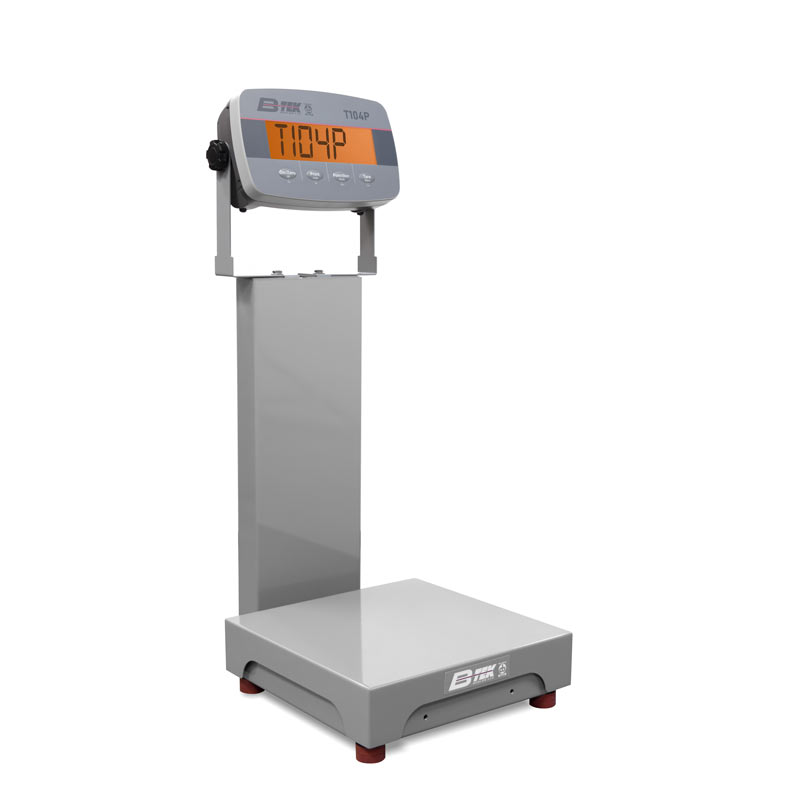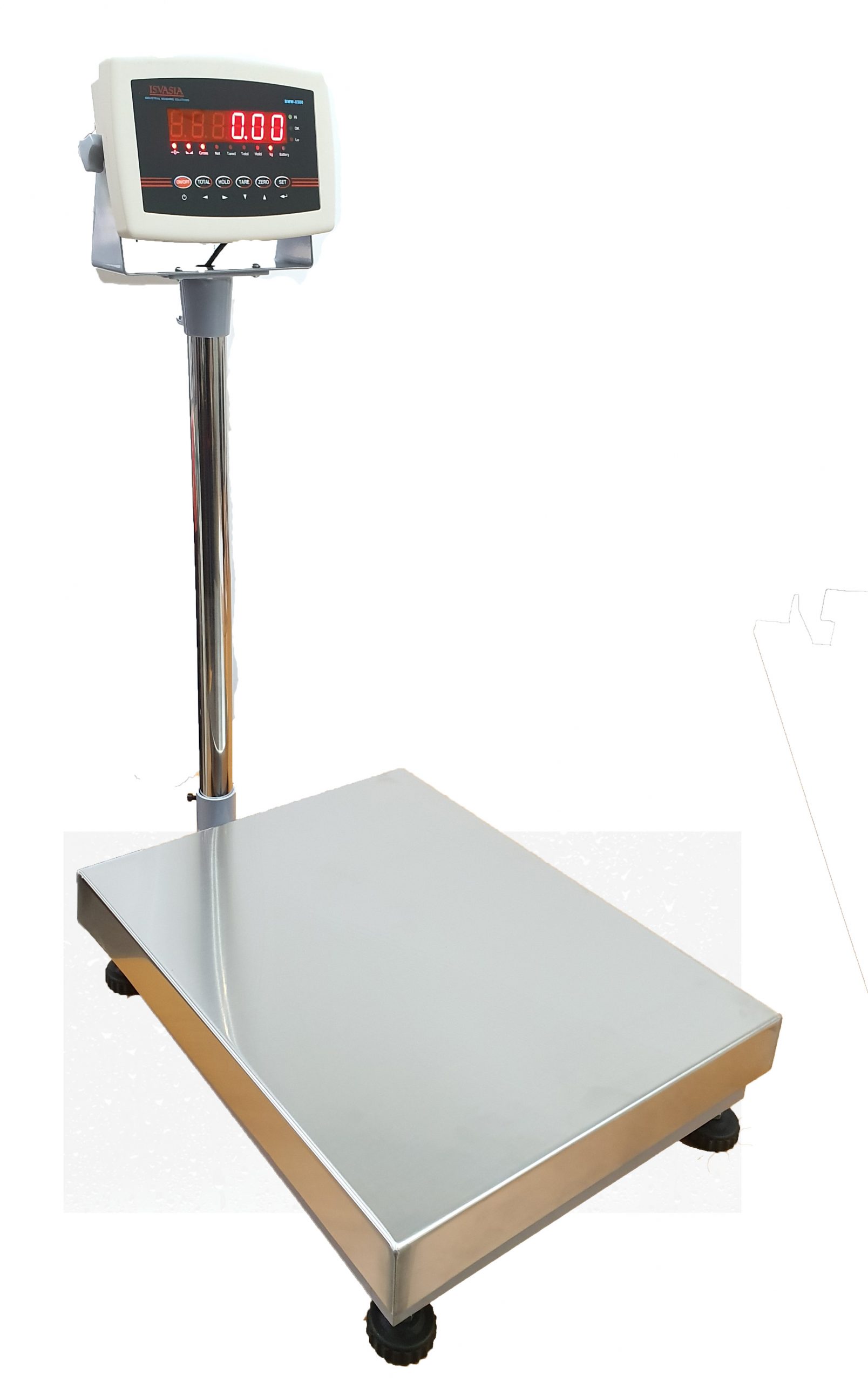Exactly How Commercial Scales Improve Accuracy in Production and Logistics
By ensuring that materials are considered accurately, companies can reduce mistakes that might lead to significant financial effects. The arrival of advanced modern technologies in evaluating systems is transforming conventional procedures.
Significance of Accuracy in Workflow
In the realm of production and logistics, accuracy is the cornerstone of operational performance. Accurate measurements are crucial for maintaining high quality control, optimizing source appropriation, and ensuring conformity with industry criteria. When operations count on exact information, services can decrease waste, enhance production timelines, and boost general efficiency.
The relevance of accuracy extends beyond basic dimension; it additionally influences decision-making processes. For example, specific weight readings can establish appropriate stock levels, simplify supply chain logistics, and help with precise invoicing. Furthermore, errors in measurements can bring about expensive mistakes, such as overflow or ignoring product needs, which can threaten project timelines and earnings.
By applying extensive dimension standards, companies can identify inefficiencies and establish enhancements, inevitably leading to boosted consumer complete satisfaction. Hence, spending in accuracy dimension tools, such as commercial scales, is not simply a technological factor to consider but a calculated critical for success in the production and logistics fields.
Kinds of Industrial Scales
Different sorts of commercial scales play a crucial role in accomplishing the accuracy necessary for efficient manufacturing and logistics operations. Each type is created to fulfill specific needs, guaranteeing precise measurement of parts, materials, and items.
One typical kind is the platform range, which supplies a flat surface for weighing bulk materials or big products. An additional kind is the bench range, usually smaller sized and made use of for weighing individual bundles or smaller sets of items.
For applications where accuracy is vital, logical equilibriums are used. These high-accuracy ranges are made use of in laboratories and research settings to determine tiny amounts with utmost accuracy. Flooring ranges, designed for heavy-duty weighing, are perfect for considering large pallets or containers, frequently integrated with forklifts for efficiency.
Additionally, load cells are utilized in various applications for real-time weight measurement and information collection. Each of these scales contributes distinctly to the functional performance, making certain that businesses can keep precision throughout their production and logistics processes. Comprehending the kinds of industrial ranges is crucial for enhancing efficiency and accomplishing operational quality.

Impact on Stock Administration
Precise considering is essential for efficient stock monitoring, as it straight affects supply precision and operational effectiveness. In manufacturing and logistics, exact dimension of products and products guarantees that inventory records reflect actual stock degrees, reducing discrepancies that can result in overstocking or stockouts. Industrial scales give the essential accuracy to consider things precisely, allowing services to keep a dependable stock system.
Additionally, accurate weighing adds to far better projecting and planning. With precise information on supply levels, organizations can make enlightened choices relating to procurement and production timetables. This decreases the risk of excess supply, which can link up funding and increase storage space expenses, as well as protect against shortages that Recommended Site might interrupt operations.
Moreover, the assimilation of industrial ranges with supply management systems facilitates real-time monitoring of supply movements. This streamlines the procedure of updating supply records, enhancing openness and accountability throughout the supply chain. Inevitably, precise weighing not just supports reliable inventory monitoring however likewise drives overall functional efficiency, making it possible for companies to react quickly to market needs and maintain a competitive side in their particular sectors.
Enhancing High Quality Control
Effective stock management not just ensures optimal stock levels yet also lays the groundwork for robust quality assurance processes. Industrial ranges play a crucial role in boosting top quality control by offering accurate weight measurements that are essential for keeping item integrity. Regular visite site weight verification makes it possible for manufacturers to comply with specifications, making sure that each item fulfills the required top quality requirements.
In high-stakes settings, such as food manufacturing or pharmaceuticals, also minor weight inconsistencies can cause substantial conformity issues. By integrating industrial ranges into the assembly line, firms can keep track of product weights in genuine time, permitting prompt corrective actions if problems are discovered. This aggressive method lessens waste and enhances total item reliability.
In addition, exact considering promotes better formulation of resources, which is essential in sectors such as cosmetics and chemicals. By guaranteeing that ingredient proportions remain consistent, manufacturers can accomplish premium product quality, enhancing customer satisfaction and reducing returns.
Future Trends in Considering Technology
The future of weighing modern technology is poised for considerable improvements driven by automation, connection, and information analytics. As industries evolve, the assimilation of advanced sensing units and IoT (Web of Things) capacities will make it possible for real-time monitoring and coverage of weight information. This connection will certainly not only improve functional performance yet also facilitate anticipating maintenance, lowering downtime and boosting productivity.
Furthermore, the incorporation of fabricated knowledge and maker learning formulas into considering systems will enhance information analysis capacities. These modern technologies can identify patterns and anomalies, permitting even more informed decision-making and maximized supply chain management. The surge of cloud-based services will enable smooth data discover this sharing throughout systems, making sure that stakeholders have accessibility to updated information at all times.
Sustainability will certainly also play an essential role in future weighing innovation. As organizations aim to reduce their carbon footprint, considering systems that incorporate energy-efficient designs and materials will become significantly vital. Furthermore, developments in digital evaluating ranges will sustain far better resource monitoring by giving specific measurements that reduce waste.
Conclusion
To conclude, industrial scales significantly boost accuracy in manufacturing and logistics by providing exact weight dimensions crucial for effective operations. Their duty in supply management, quality assurance, and integration with sophisticated innovations emphasizes their value in maximizing and minimizing disparities resource allowance. As sectors remain to develop, the adoption of cutting-edge weighing solutions will better support operational efficiency and minimize waste, eventually adding to enhanced efficiency and competition on the market.
One common kind is the system range, which supplies a flat surface area for evaluating bulk products or large things. Another type is the bench range, usually smaller sized and made use of for considering individual plans or smaller sized batches of products. Flooring scales, created for sturdy evaluating, are perfect for evaluating huge pallets or containers, often incorporated with forklifts for performance.
Industrial scales provide the necessary accuracy to weigh products properly, allowing services to preserve a dependable inventory system.
